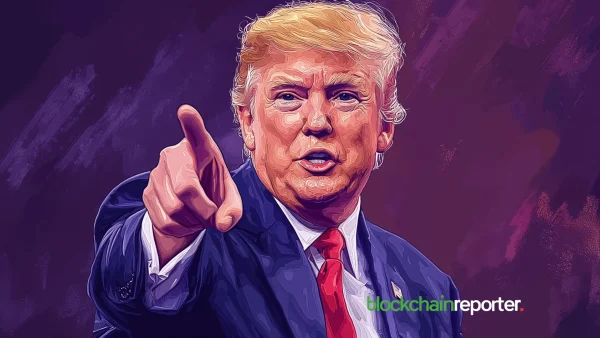
As the cryptocurrency landscape continues to evolve, recent legal developments have sent shockwaves through the crypto industry. From the sentencing of Sam Bankman-Fried in the FTX scandal to the SEC’s pursuit of Ripple Labs, the cryptocurrency community finds itself at a crossroads of accountability and regulation. The verdict against Sam Bankman-Fried marks a significant milestone in the FTX fraud saga. His downfall from billionaire status to bankruptcy serves as a cautionary tale. Meanwhile, Ripple Labs faces a formidable legal battle as the SEC seeks a staggering $2 billion in fines. KuCoin also faced a similar situation from the regulatory point of view. These legal showdowns underscore the need for clarity and compliance within the industry. Keep reading this weekly news review to find out how this week unfolded.
FTX Scandal: Sam Bankman-Fried Sentenced to 25 Years for Cryptocurrency Fraud
Sam Bankman-Fried, the once-prominent figure in the cryptocurrency world, has been sentenced to 25 years in prison for his involvement in the FTX fraud scandal. Judge Lewis Kaplan delivered the verdict in a Manhattan courtroom concluding the saga. Bankman-Fried, the former chief of the now-defunct FTX exchange, was convicted last year of fraudulent activities. The charges against him included conspiracy to engage in money laundering as well. The prosecution sought a harsher punishment of 40 to 50 years while the defense argued for a substantially lesser term of around seven years. Bankman-Fried’s downfall from a billionaire to bankruptcy serves as a cautionary tale in the cryptocurrency industry.
Bankman-Fried’s rapid rise to prominence was matched only by his unexpected fall. His empire, FTX, once valued at $32B. However, revelations of financial instability led to bankruptcy and the erosion of his fortune. The trial captured public attention and highlighted the misappropriation of client funds for personal gain. Later on, he was blamed for the Terra ecosystem collapse as well. Despite Bankman-Fried’s defence, crucial testimonies from former associates like Caroline Ellison sealed his fate. The swift jury decision after just four hours underscores the gravity of the evidence. Bankman-Fried’s sentencing serves as a landmark moment in cryptocurrency regulation sending a warning to the industry about accountability and oversight.
Circle Launches CCTP on Solana Mainnet for Cross-Chain Transfers
Circle’s Cross-Chain Transfer Protocol (CCTP) has launched on Solana’s mainnet. This heralds a new era of cross-chain interoperability in the cryptocurrency ecosystem. This development allows seamless transfer of $USDC (USD Coin) across 8 different blockchains with 1:1 capital efficiency. This development will facilitate secure transactions through a native burn-and-mint process. Solana’s high throughput and low latency provide an ideal environment for cross-chain transactions. This will enable users to deposit USDC directly from Ethereum and other supported networks.
CCTP expands USDC transfers across 56 routes between various blockchains, ensuring flexibility for users to move their holdings without being tied to a single network. By eliminating the need to lock up liquidity, CCTP offers a more capital-efficient and secure solution for cross-chain transactions. The integration of CCTP on Solana has garnered support from ecosystem partners such as Allbridge, Cube C3protocol, DriftProtocol, and others.
KuCoin Founders Face Charges in AML Case
In a groundbreaking legal development, KuCoin and its founders namely Chun Gan and Ke Tang, are facing charges for allegedly bypassing crucial anti-money laundering (AML) laws. Led by United States Attorney Damian Williams and Special Agent Darren McCormack, the case alleges that the exchange operated without necessary licenses. Moreover, the exchange failed to meet AML standards mandated by the US law, despite its significant international presence and large customer base. The indictment accuses KuCoin of neglecting adequate KYC procedures and enabling anonymous trading.
As this case unfolds, the repercussions extend beyond the immediate legal consequences for KuCoin and its founders. This case is becoming a litmus test for U.S. financial regulation enforcement in the crypto industry. The outcome could profoundly influence how crypto exchanges worldwide approach compliance and operations. This legal battle underscores the imperative for transparency and compliance within the cryptocurrency sector. Moreover, this sends a clear message that adherence to U.S. financial regulations is non-negotiable, even for businesses operating outside the United States.
SEC Seeks $2 Billion from Ripple in Legal Showdown
The U.S. Securities and Exchange Commission (SEC) has ignited a legal firestorm against Ripple Labs. It is seeking a monumental $2B in fines and penalties. Stuart Alderoty, Ripple’s Chief Legal Officer, unveiled this bombshell, signaling a protracted legal battle ahead for the blockchain company. At the core of the dispute are allegations from the SEC accusing Ripple of unlawfully selling unregistered securities through its cryptocurrency, XRP. Ripple is now gearing up for a fierce legal showdown in April to challenge the SEC’s assertions.
This high-stakes confrontation has captivated the cryptocurrency world, with Ripple’s fate holding significant implications for industry regulation and the treatment of digital assets. As Judge Analisa Torres’s recent ruling partially favored Ripple, it has set a precedent eagerly observed by other crypto entities under SEC scrutiny. Ripple’s unwavering stance reflects broader industry sentiments against regulatory overreach, pushing for a regulatory framework that acknowledges the unique nature of digital currencies. As Ripple prepares for its next legal battle, the outcome looms large poised to shape the trajectory of cryptocurrency regulation and innovation for years to come.
Recent legal battles, from Bankman-Fried’s sentencing to the SEC’s pursuit of Ripple and charges against KuCoin founders, highlight the industry’s struggle with regulatory compliance. These cases emphasize the need for transparency and adherence to financial regulations. As these legal battles unfold, the industry braces for their implications.








